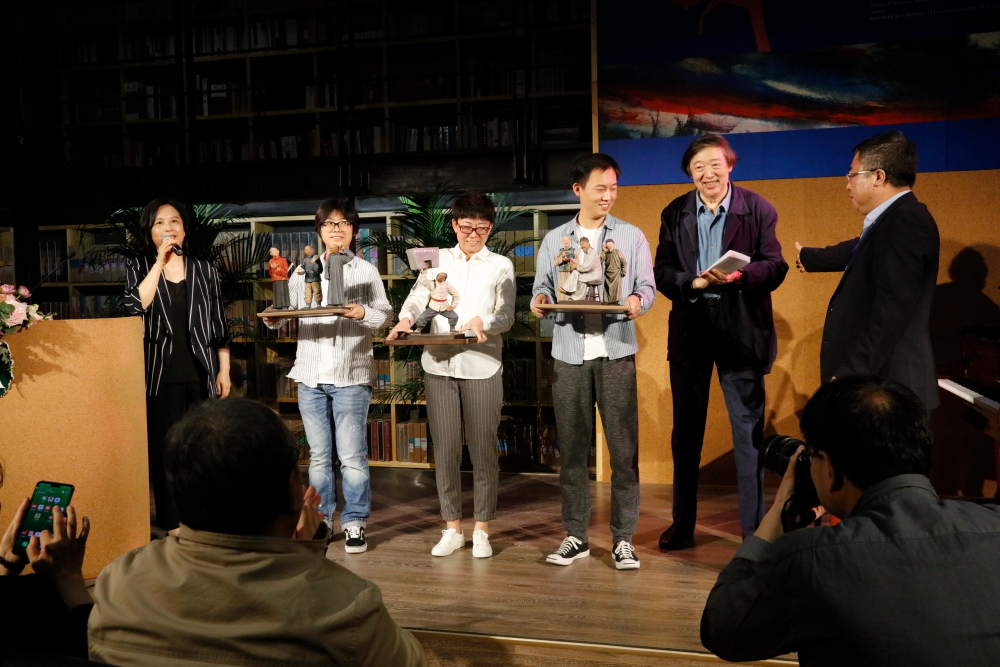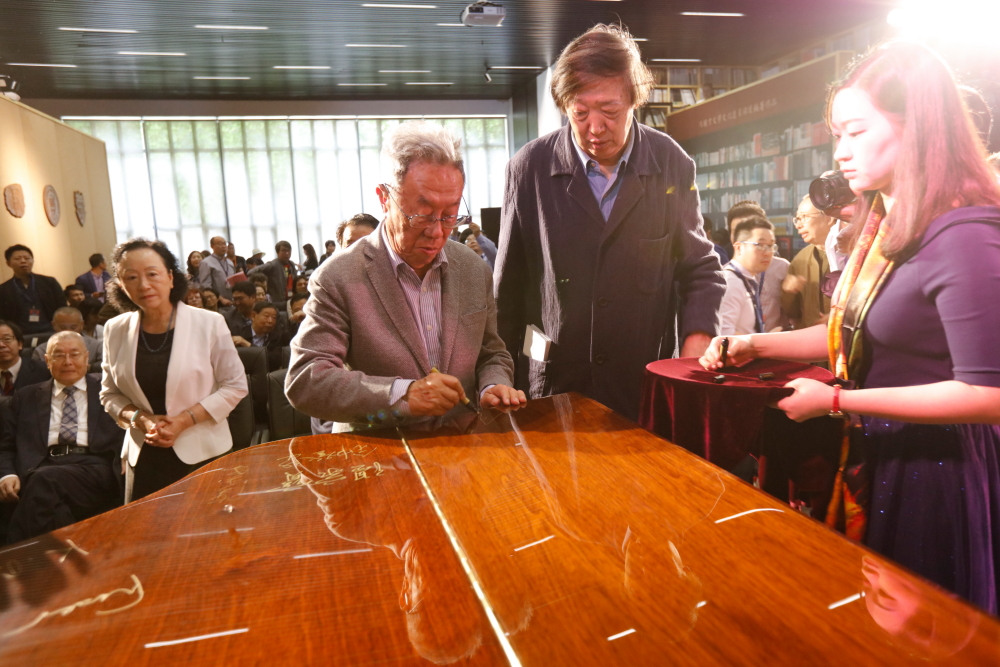
International Symposium on Feng Jicai’s Narratives of Culture over the Last Five Decades opened at Tianjin University on May 9. At the same time, the hardcover set of Feng Jicai’s Narratives of Culture over the Last Five Decades was published by People's Literature Publishing House. Over 120 writers, artists, critics and scholars from home and abroad gathered in Tianjin University to discuss this set of works of five decades of Feng’s life devoted to culture.
As one of the most significant writers of Contemporary Chinese Literature and the man riding the wave of Chinese literature since the Cultural Revolution, Feng Jicai stopped writing novels to devote himself to the rescue and preservation of cultural heritage at a time when Chinese society were going through a rapid transformation.
Why would he choose such a path full of hardships and where did his extraordinary willpower come from? The answer can be found in Feng Jicai’s Narratives of Culture over the Last Five Decades, the set of books newly published by the People's Literature Publishing House. Since 2014, Feng’s four books contained in this set were successively put out by the Publishing House, and this hardcover version was a newly published collection celebrating this symposium.
In this set of works, are a nonfictional account of Feng Jicai fifty years’ contribution to culture from a young age to today. Glaciers and Ice Jams, which started from his early years, are an autobiographical history of his life; Torrents, in the nature of a psychological history, narrates Feng’s psychological journey in the new era of literature; and Maelstroms, records the progress of cultural heritage protection, is a history of thought.
“This set of books seems like an autobiography, but in fact, it is a narration of the spiritual characteristics of our generation who share destiny with the times from the experiences of an intellectual and his hard thinking, pursuit and action, promoting civilization and the progress of society as his lifelong mission.” Feng said.

At the opening ceremony of this symposium, many friends and partners of Feng in fields such as literature, art, and cultural heritage gathered on this happy occasion. Many distinguished guests were his bosom friends in literature, including Wang Meng, Zhang Kangkang, Chen Jiangong and Liu Heng, experts in art such as Han Meilin, Liu Shikun, Wang Liping and Wu Weishan, Feng’s partners in folk literature, including Yu Weiren, Zheng Yimin, Cao Baoming, Xiang Yunju, critics such as Nan Fan, Li Hui, Zhou Limin, Xie Youshun and over ten translators and sinologists from Britain, Russia, France, Germany, Italy, South Korea, Egypt, Vietnam and other countries.
The opening ceremony was hosted by Bai Yansong, in a warm, academic and artistic atmosphere. Dr. Yukteshwar Kumar, a professor at the University of Bath in the United Kingdom, translated "Hylin Pear" by Feng Jicai, Han Meilin's oral history into English and brought a translated version to present it to Feng, his old friend. Zang Yongqing, director of the People's Literature Publishing House, asked Feng to join him in the unveiling of the hardcover set Feng Jicai’s Narratives of Culture over the Last Five Decades. The famous writer Wang Meng and Professor Rodionov of the Eastern Department of St. Petersburg University, made a speech full of enthusiasm and humorous wisdom. The famous musician Teng Shichu and the master of the piano Liu Shikun gave wonderful performances. The former CCTV host, now a supervisor of the Communication University of China, Wang Zhi, recited the poem Road by Feng: “This is a path of joy and sometimes pain. This is a road filled with thorns... But I am determined to follow this path because it is real." This poem, a portrayal of his decades of work, which was written during his hard times, deeply moved the audience.
On the afternoon of May 9 and 10, the two sessions of literature and cultural heritage protection were carried out simultaneously. Many noble scholars and critics at home and abroad attended the symposium on Feng Jicai’s Narratives of Culture, his writing of non-fiction, his study of cultural heritage protection and research on the psychological history of intellectuals and the transformation of the times. Experts and scholars believed that the series of works of Feng Jicai is the peak of contemporary Chinese non-fiction literature, which is of significant value in Chinese contemporary literature history, cultural history, and the record and practice of cultural heritage protection. Feng Jicai's writing of literature, creation of art, and ideas on cultural heritage protection deserve further exploration. In-depth research on Feng as a characteristic figure of the generation of intellectuals in the period of social transformation should be conducted.
The International Symposium on Feng Jicai’s Narratives of Culture over the Last Five Decades was jointly held by China Writers Association, the Central Culture and Arts Committee of the China Association for Promoting Democracy, Tianjin University, the People's Literature Publishing House, the Chinese Folk Literature and Art Association, and operated by the Feng Jicai Institute of Literature and Art, Tianjin University.
By: Cui Jingyue
Editors: Ross Colquhoun, Sun Xiaofang






